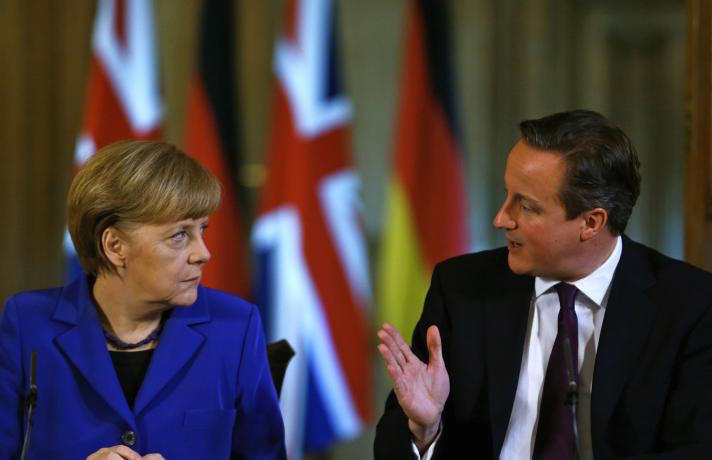Of all the talks he will have with European leaders about his plans to renegotiate Britain’s relationship with Europe, David Cameron was always likely to enjoy his meeting with Angela Merkel the most. And she doesn’t seem to have disappointed him, saying treaty change was not ‘impossible’ and that ‘we would like to be a part of the process that is going on in Great Britain at the moment and we would like to be a constructive partner in this process’.
This is very encouraging for Cameron, though the feeling in Europe generally is still that treaty change is too hard or inconvenient. Which is why Number 10’s insistence on saying that treaty change is essential is quite odd, and has baffled those in Europe trying to understand domestic political briefings in Britain, including the Germans. Take this line from the lobby briefing on Tuesday. Asked whether treaty change would be required for the reforms the Prime Minister plans on access to benefits, for instance, Cameron’s official spokesman said:
‘The advice he’s received is it’s necessary for changes in welfare and immigration, in particular.’
Now, given Merkel has today said treaty change is not ‘impossible’, there is a glimmer of hope, but other European leaders have been and will be far tougher on this, which makes it odd that insofar as Cameron has set out some kind of vague shopping list for reform, he’s put treaty change down on it at all.
A bigger contradiction, though, is that even if Cameron does manage to get treaty change that enables restrictions on migrants’ access to benefits – or manages to get these restrictions without treaty change – they will not have a big impact on net migration. This would be fine if the Tories hadn’t recommitted to their target to drive net migration into the ‘tens of thousands’. But given Cameron has accepted that there is nothing he can do about the principle of free movement of labour, he has effectively accepted that he will never meet a target that he has just committed to. Which is odd.







Comments